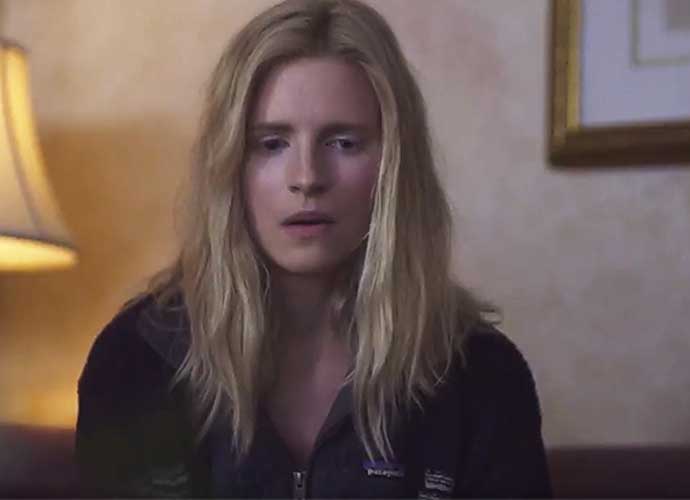‘The OA’ Review Roundup: A Show Much Weirder Than It Needs To Be

2.5/5
Though Netflix announced the project back in 2015, the timing and specifics of their new show The OA weren’t released until a few days ago, and already the series has garnered lots of attention. The mystery thriller is available for streaming on Netflix today and focuses on a young blind woman (Brit Marling) who disappears and resurfaces with her sight back. The eight-episode series takes unexpected twists and turns throughout each episode, deeming it anything but predictable.
Creators Marling and Zal Batmanglij play with the show’s nonlinear timeline and weave us through the story in zig zags. Even the episode lengths keep the audience a bit off balance, ranging from 30 to 70 minutes long. While, this seems intriguing, it ultimately makes for a very choppy timeline. And while the show definitely calls for viewers to suspend their disbelief, some find the gaps in the story’s logic to be distracting. The main complaint circling the web is how little sense much of the action and story make.
Ultimately, it seems, the show did not quite hit the mark it aimed for, as most critics agree it is at times beautiful and profound, but more often than not far more complicated than it needs to be.
What does it all mean? @The_OA. Now streaming. pic.twitter.com/K1ItxVMsQ8
— Netflix US (@netflix) December 16, 2016
THE OA REVIEWS
“The OA wants to blur the lines between myth and reality, between suburban ennui and tribal spirituality. It’s a noble endeavor, and one that could yield beautiful storytelling. But often in “The OA,” the lines do not seem blurred as much as trampled through mud — as if children have been unwittingly left in charge of tending the fences between the sacred and the profane. Despite having the best intentions — and technical skill that is at times breathtaking — the story of The OA, the thing it is trying to be about, is little more than pretty much nonsense — self-indulgent, self-serious psychodrama… Indeed, one of the reasons it’s hard to dismiss “The OA” outright is because it is so technically accomplished. Co-creator Zal Batmanglij directs every episode with straightforward elegance, and the basement where the OA is imprisoned — one of the show’s primary set pieces — is a fascinating metaphor of production design, set up with glass cages, running water, heavy metal, and lab equipment that doubles as torture devices. As is the case with so many fairy tales and myths, the core of the OA’s story is a very dark journey of suffering, layered with the brightness of magic, mysticism, and young love. The show excels at exacerbating the whiplash between the possibility and horror of its most spiritual asides, establishing magic as transcendence only possible through the gauntlet of suffering.”
–Sonia Saraiya, Variety
“It’s both a blessing and a curse for Netflix’s top-secret new show The OA that viewers might mistakenly stumble in expecting a new pop sci-fi obsession à la Stranger Things… It’s a lofty, sometimes-moving, sometimes-profound rumination on a host of deep questions: on trauma, spirituality, human connection, and the possibility of life after death, among other things. It unfurls slowly (so, so slowly, especially in its early episodes) into a cerebral sci-fi mystery not quite as compelling as it’s convinced it is. There are also two timelines to juggle, two sets of supporting characters, two adoptive parents, (and one dead biological one), and a deeply complex villain played by Lucius Malfoy himself, Jason Isaacs. It’s a lot of moving parts; many don’t get the follow-through they deserve… It’s gorgeously shot and powerfully acted, especially by Marling, who can be startling and mesmerizing and sweet, all while telegraphing otherworldly intelligence… The result is a show that pays a fitting, if overwrought tribute to love and to human will. Parts of it are frightening—try making it through Episode 3 without heart palpitations—and some parts really do reach the thought-provoking profundity the show aims for. It doesn’t have the mass appeal of Stranger Things, but who says it has to? It wants to be difficult. Such staggering ideas as life after death are supposed to be. If you’re still undecided, take a leap anyway. Like the tagline says: Trust the unknown.”
–Melissa Leon, The Daily Beast
“The OA is a show of utter and ultimately self-defeating earnestness that also can’t follow through on its grand reveal once it comes. The first five episodes are all roughly an hour, slow but at least reasonably structured, and the last three episodes are significantly shorter, choppier and hamstrung by lame “And that’s why this character was introduced” twists and a distinct absence of follow-through on the show’s key ideas. By the eighth episode, I didn’t care about anybody’s fate and I was watching for a payoff I’d joked about in my notes, knew was coming and yet still managed to be sillier than I imagined. All goodwill and intrigue from the first four episodes was gone. As frustrated and unhappy as I finally was by The OA, I still want to say this: I love that Netflix (or any other TV or streaming entity with similar guts) is willing to do a show like this.”
–Daniel Fienberg, The Hollywood Reporter
RELATED ARTICLES
Get the most-revealing celebrity conversations with the uInterview podcast!







Leave a comment